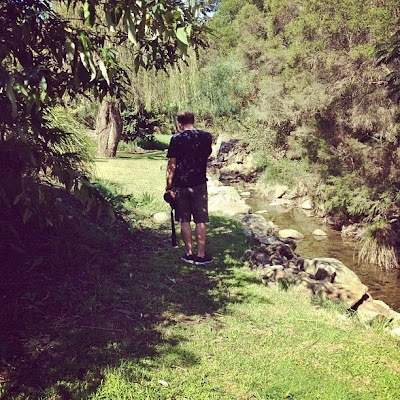Nurturing Writing Rehearsal Beyond The Classroom
I find myself frequently informing inexperienced, student writers that I spend a lot of time thinking about writing in addition to all the actual writing I choose to do. I want them to know that part of my personal process as a writer is to engage in a lot of what we might refer to as -rehearsal. I do not wait until I'm actually writing to begin the necessary thinking that launches a writing piece.
I actually devote a sizable amount of time to collecting ideas, ephemera and artefacts to further enlighten me. Then there's the incalculable time devoted to considering, observing and rehearsing writing related matters. Matters, I believe might prove useful, when I return to my writing place.
For this reason, I find myself buoyed when a young writer enters a classroom and informs me they know what they intend to write about that day -before we even begin the writing workshop. They arrive with pre-determined writing intentions. This is clear evidence of rehearsal occurring beyond the classroom. I realize that for this particular writer, the act of writing has become more than something you do at school.
They are operating in the wider world with their writing radar well and truly switched on. Their time away from writing is now informing possible future writing projects. Words and images are mingling with a feast of thoughts and potential ideas.
As a consequence, such writers are more likely to closely observe their immediate world and devote more active attention to matters previously overlooked.
When senses are alert, the observant and curious learner is more likely to notice small, yet significant details, as they move about. -The sweet smell of jasmine in the late afternoon sun, the sharp smell of seaweed clustered on the shoreline, the roughness of pebbled paving under bare feet, the solitary sadness of an abandoned building, or the graceful flight of a butterfly through a garden.
Such noticings and much more will hopefully emerge when they eventually sit down to write. They will have more to call upon. All that has been consciously seen, smelled, tasted, and heard can be reclaimed to better inform the writing. Sensory detail is more likely to be included, making the writing more engaging for a reader, who is given a clearer view. The writer's word pallete is now enlivened.
This is why encouraging young writers to rehearse and observe during times they are not actually writing, assumes such importance. It actually possesses benefits extending beyond the act of writing. Engaging with the world, and the immediate landscapes we move through, offers a host of fascinating treasures and rich pickings for the curious wanderer. It extends word knowledge and world knowledge. Curiosity grows. All it requires is a keen eye.
As educators, we can play an active role in nurturing the growth of these actions by consciously bringing the outside in, sharing our curious wondering and discoveries, sharing our process for collecting, recording and rehearsing when traversing the wider world.
Advice To Young Writers:
Go outside. Walk about with your senses fully switched on. Stop, look, listen. Sit inside a shadow. Watch the sky drift by. Stand beside a tree. Touch its bark and become part of a natural marvel. Watch the world from a host of different positions. Soak in as much as you can. Carry it back to where you write. Spread it aming your words...
©Alan j Wright








Comments
Post a Comment